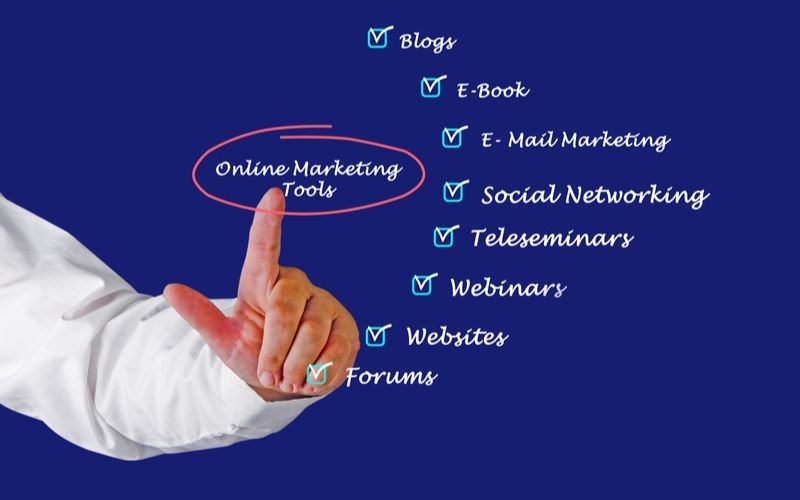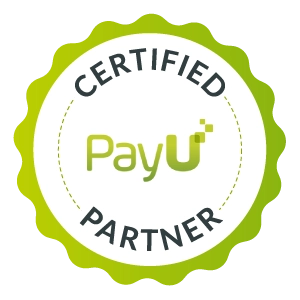Table of Contents
Introduction

E-commerce moves quickly; if you want to dive head-first into this digital retail revolution, choosing the best e-commerce platform for your online store becomes a compulsion and matters the most. Now you’ll get a proper understanding and the right kind of tools to judge which e-commerce platform will be most appropriate for your business.
Understand the Basics of the Best E-commerce Platforms
Basically, an e-commerce platform is a software solution for opening, managing, and running an online store. It offers all the functionalities of a storefront to represent products, provide secure ordering, and give a smooth shopping experience to customers. In fact, there are also different types of e-commerce platforms, which include:
• Hosted Platforms: A complete cloud-based platform where server maintenance or updating software is not your headache. We cannot claim them to be user-friendly as they use minimal intervention of technical expertise. Examples include Shopify and Wix Ecommerce.
• Self-Hosted Platforms: They are more flexible, customizable, and require installation on your server, after which you can manage them. They are suitable for businesses with particular needs and technical know-how. Examples include WooCommerce.
• SaaS Platforms: Much like the case of hosted platforms, SaaS platforms are cloud-based, where the quantity of work related to maintenance is kept at a minimum. They have subscription-based pricing and are, hence, highly scalable for any business. Example— BigCommerce, Squarespace Commerce
Factors to Consider in Choosing the Best E-commerce Platform
When there are so many platforms to choose from, picking the Right and the Best e-commerce platform for your online store involves consideration of several factors. These are:
Scalability
Your Shopify site should be able to scale as your needs increase. Pick the one that facilitates more products going through it, traffic spikes and expansion plans. In this case, it will be things like unlimited product uploads, the potential to add more bandwidth over time and even dealing with high traffic matters.
Budget

The charging varies e-commerce platforms have different ways of charging. Some of the common ones are a monthly subscription fee, transaction fees, which take a certain percent of every sale, and added charges when add-ons or premium features are applied. Make sure to account for all these while deciding on the budget. Be mindful that the cheapest solution might not turn out cost-effective in the long run.
Ease of Use
The Best E-commerce platform should be easy to use for both you and your customers. Make sure that this contains drag-and-drop website builders, with intuitive interfaces, easy product management tools, and simple checkout procedures. In this way, your customers will just love the clean and user-friendly shopping experience.
Features and Functionality
The function part of a commerce store depends on its features, which are offered by any e-commerce platform. Here are the most significant ones:
Product Management : Provides optimal solutions to allow you perform the basic add, edit and remove operations on your product listings.
Inventory Management: It has been incorporated with inventory management features like monitoring the stock level, prevention of overselling, and efficient order processing.

SEO Tools: Optimizes the online storefront for search engines and gives organic traffic.
Marketing Tools: With inbuilt marketing tools, handling marketing is easy. It has built-in email marketing, social media integration, and discount code management.
Mobile-friendliness and Responsive Design: Responsive design and mobile-friendly shopping experience are considered very vital nowadays. People shop on their mobile devices, so it’s super important.
The best e-commerce platform will offer all these capabilities, along with scalability and security, to help your online store grow and thrive in a competitive market.
Security
In today’s digital age, strong security features are relevant to every aspect of business. Ensure that the best e-commerce platform you choose is PCI compliant and has SSL certificates in place to protect customer information.; it must also have anti-fraud tools in order to safeguard your company and customer details.
Process Payment
Giving customers as many options as possible in payment is the key to customer satisfaction. Choose one that integrates well with top payment gateways and ensures service ease for different customer tastes.
Customer Support

Responsive customer support is everything in troubleshooting any kind of issues. Look for a platform that will be able to provide multiple means of support: phone, email, and chat support, together with fast time-to-respond.
Integrations and App Marketplace
Integrate with third-party apps and services to massively increase the functionality of your online store. Choose the best e-commerce platform that offers an extensive App Marketplace, enabling seamless integration with marketing automation tools, accounting software, shipping solutions, and more. This will enhance your store’s capabilities and improve overall business efficiency.
Popular Options for E-Commerce Platforms

Many e-commerce platforms are available at your disposal. Each serves certain needs and budgets. Following is an overview of some of the major players:
Shopify: A popular all-in-one solution known for its ease of use and huge app marketplace.
WooCommerce – A WordPress plugin that’s ideal for businesses looking for customization and control over their online store.
BigCommerce – Offers a scalable solution with built-in features that allow for easy growth and management of large catalogs.
Conclusion
Choosing the best e-commerce platform for your business is a critical decision that can greatly impact your success. It’s important to consider factors like ease of use, scalability, security, customization, and integration with third-party tools. The right platform should align with your business goals, budget, and future growth plans. Whether you’re a small startup or a large enterprise, selecting an e-commerce solution that meets your specific needs will ensure a seamless online experience for your customers and help you stay competitive in the evolving digital landscape.
Frequently Asked Questions
on choosing the right e-commerce platform for your online store:
Here are some frequently asked questions that you could add to your blog post about choosing the best e-commerce platform:
General Questions:
• Do I really need a developer to set up my online store?
It will depend on which platform you choose. For example, Shopify and Wix Ecommerce are hosted sites that are designed to be easy to use; thus, you only need minimal technical knowledge. Whereas self-hosted platforms, like WooCommerce, will call for technical knowledge in some ways for its installation and other subsequent maintenance practices.
• What is the difference between a hosted platform and a self–hosted platform?
Cloud-hosted platforms mean that the provider is taking care of the software. You wouldn’t need to worry about server maintenance or updating software. In contrast, self-hosted ones require you to install and manage the software on a server of your own. These types of platforms offer flexibility but require more technical knowledge.
• How much does it cost to set up an online store?
This will depend on the platform, the features you have selected and other extras that you may need such as web design services. Most of the platforms charge based on monthly subscription fees, while others also charge on per-sale bases. Make sure to consider all these in your budget planning.
Specific questions on features:
• Which features are crucial for search engine optimization?
Look for platforms that support clean URLs, meta description editing, title tags, and sitemap generation to make it easy for search engines to find your store.
How important is the mobile optimization of an e-commerce platform?
Mobile optimization is important because, increasingly, customers shop on their smartphones. Therefore, make sure that your platform comes with responsive design and faster page loading.
• What are the marketing tools?

Built-in marketing tools—such as email marketing features, social media integration, and discount code management—can save you precious time and resources in running your business by automating your marketing efforts.
• What security features am I supposed to look for?
Your platform should be PCI-compliant to ensure secure credit card transactions. In addition, look out for SSL certificates for data encryption and fraud prevention tools to protect your business and the customers.
Choice of Platform:
• Which one is the best e-commerce platform?
There is no single “best” platform – the ideal choice is determined by your specific needs, budget, and technical expertise. Consider the factors described in this blog post to evaluate the various platforms and choose the most suitable one for your store.
• Can I switch platforms later?
This can be done, yes. You can migrate your online store to another platform, but it would pose some complications. It’s always better to choose your e-commerce platform correctly right at the very start to avoid the hassle of switching later.
What is an e-commerce platform, and why is that important for my online store?
An e-commerce platform is a software application that allows businesses to sell products or services directly to its customers through the Internet. It provides the base for your online store, covering everything from product listings to inventory management, checkout, and order fulfillment.
How to Choose the Best E-commerce Platform?
They would include your budget, type of product, features needed, technical expertise, scalability, and long-term objectives.
What are the primary types of e-commerce platforms available?
The major ones are hosted platforms like Shopify, BigCommerce; self-hosted ones like WooCommerce, Magento; enterprise solutions like Salesforce Commerce Cloud.
How much does an e-commerce platform usually cost?
The prices really depend on the platform, features you want to include, and of course, how big your business is. Some charge a monthly subscription fee, while others take a small transaction fee or both.
Will Shopify work well for small businesses?
Yes, Shopify is a great idea for small businesses specifically because of the fact that it’s easy to use and has a large community of add-ons available.
What are the pros of using WooCommerce?
WooCommerce is an ultra-customizable, flexible, and highly affordable solution, especially if you’re a tech-savvy kind of businessperson.
Is BigCommerce a good choice for businesses with large product catalogs?
Yes, BigCommerce is very strong in large product catalogs and has robust features in the area of scaling your business.
Can I easily transfer my store from one platform to another?
Yes, you can move your store across platforms, but most of the time, it requires technical expertise or usage of migration services.
Feature and Functionality Questions
Which payment gateways are normally supported by an e-commerce platform?
Most of the platforms come with the support of PayPal, Stripe, and Authorize.Net, among many other popular payment gateways.
Can I sell Digital Products On An E-commerce Platform?
Yes. Many platforms support selling digital products like ebooks, software, and music.
Business Growth Questions
How Do I Scale My Online Store With An E-commerce Platform?
The ability to scale is what a lot of e-commerce platforms offer: running multiple stores from one dashboard, inventory management across more than one location, integration with third-party tools to extend functionality.
What Is The Purpose Of CRM In Ecommerce?
A CRM will help you manage your customer interactions, track your sales, and increase customer satisfaction. Lots of e-commerce platforms integrate with CRM software.
How to know whether my e-commerce store has been successful?
KPIs include sales revenue, conversion rates, average order value, and customer lifetime value.
Technical and Integration Questions
What is an API, and why is it important in E-commerce?
An Application Programming Interface enables different software applications to communicate with each other and exchange data. It’s going to play a critical role in the integration of your e-commerce platform with all the other tools like accounting software, marketing platforms, and shipping carriers.
Am I going to be able to change the look and feel of my online store with all the e-commerce platforms?
Though most of the platforms permit one to do customized work, the amount of control is not the same in all. Some, such as themes and editing codes, give more flexibility to the clients, while others give less.
What is the importance of website speed in e-commerce?
Website speed impacts a great deal on the user experience and conversion rates. Slow loading times are responsible for the carts abandonment by customers.
Business and Marketing Questions
How can I improve customer retention using an ecommerce platform?
Loyalty programs, personalized recommendations, effective customer service, and email marketing are ways to build a strong customer retention strategy.
What is the purpose of social commerce in ecommerce?
Social commerce is the act of selling products directly on social media. You can integrate your ecommerce store with social channels for maximum reach and driving sales.
How do I protect my online storefront from fraud?
Integrate an effective anti-fraud solution, strong password policy for customers, and secure payment gateway integration.
How important are analytics in e-commerce?
Analytics gives you deep insights into customer behavior and how your sales performance and marketing efforts fare. Use data to decide, optimize and improve your store.













